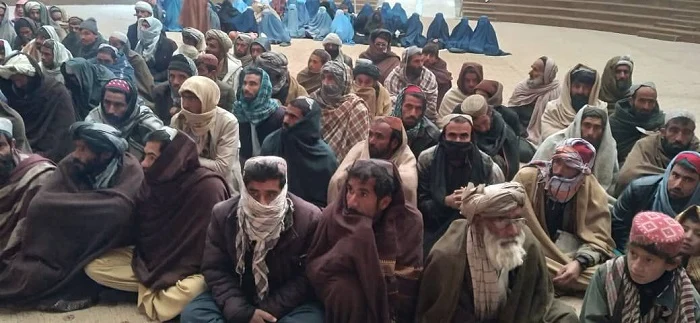Having hosted refugees from Afghanistan for decades, Iran is now getting increasingly worried about the new arrivals from the neighbouring country after the return of Taliban in Kabul.
In a meeting with the United Nations High Commissioner for Refugees (UNHCR) Filippo Grandi in Tehran on Monday, Iran's Foreign Minister Hossein Amir Abdollahian made it clear that the assistance provided by the international body was insignificant in comparison to the volume of his country's measures in this regard.
Abdollahian said that Iran does not have the capacity to provide more services than the current level to new asylum seekers, and that the international community must pay special attention to the living conditions of the Afghan people.
Iran shares a 900-km border with Afghanistan and has made efforts to keep its borders open, facilitating human and commercial movements since Taliban returned to power in August, earlier this year.
Also Read: India, Iran and Central Asia show urgency to unlock Chabahar port
It is believed that more than 3.5 million Afghans live in Iran with more than 300,000 Afghan asylum-seekers having arrived in the country this year alone in search of safety.
Iran has been providing them with education and health services but also remains concerned about the entry of smugglers and miscreants, building obstacles and walls at some places along the long border.
The Iranian Foreign Minister told Grandi on Monday that the crisis of Afghan refugees' influx towards neighbouring borders is increasingly large but the volume of international aid is very small.

UN High Commissioner for Refugees Filippo Grandi with Iran's Foreign Minister Amir Abdolahian in Tehran on Monday (Image courtesy: Iran Foreign Ministry)
He pointed out that more than 520,000 foreign students study for free in Iran and that the vaccination of Afghan asylum seekers has been considered and taken on par with that of Iranian citizens.
"Amir Abdollahian stressed that European countries must pay their fair share in this regard, and while the presence of several thousand refugees on the European borders turns into a crisis, they should not expect help from Iran forever and just pay lip service with kind words," the Iranian Foreign Ministry said in a statement after the meeting.
During his visit to the country, the UN High Commissioner for Refugees also visited a site in Sistan and Baluchistan being built with UNHCR's help to receive new refugees.
In meetings with Foreign Minister @Amirabdolahian and Interior Minister @Vahidi_org I discussed the pressure put on Iran by the recent influx of Afghan refugees.
Donors have stepped up funding for the response to this situation. These efforts must continue and urgently increase. pic.twitter.com/c5St18KV7B
— Filippo Grandi (@FilippoGrandi) December 20, 2021
"Iran needs more support for all the Afghans it hosts, including long-term refugees," he tweeted before presenting a report on the actions of the UN Refugee Agency to Abdollahian yesterday.
On Sunday, the top Iranian diplomat, had also highlighted the issue at the emergency meeting of the Council of Foreign Ministers of the Organisation of Islamic Cooperation (OIC) held in Islamabad.
In his speech, Abdollahian stated that more than 5,000 Afghans are entering Iran daily due to the fear of terrorism, insecurity and economic crisis in Afghanistan.
Emphasising that Iran considers political and social stability in Afghanistan to be in line with the collective interests of the entire region, he stated that it is possible only through the formation of an inclusive and effective government in which all ethnicities and religions play a role.
"Any postponement will give the enemies of Afghan people the chance to activate an extensive network of social criminals through spreading the terrorism of Daesh, creating economic hardships, and critical conditions in livelihood, healthcare and the basic needs of life," the Iranian Foreign Minister told the gathering in the Pakistani capital.
In a four-point proposal, Iran suggested that all Muslim states should encourage the ruling establishment in Afghanistan and all parties to form an inclusive government; formation of a financial fund among the Muslim states to help Afghans; releasing Afghanistan's assets and UN contributing to the formation of an inclusive government to prevent a new humanitarian catastrophe.
"We hope that an inclusive government will soon be formed in Afghanistan with the participation of all Afghan ethnic groups so that its representative will be able to attend the next OIC conference and Afghanistan’s seat won’t be vacant," Abdollahian mentioned.
Also Read: Chaos along Afghan-Pak border as thousands take land route to flee Taliban rule




















